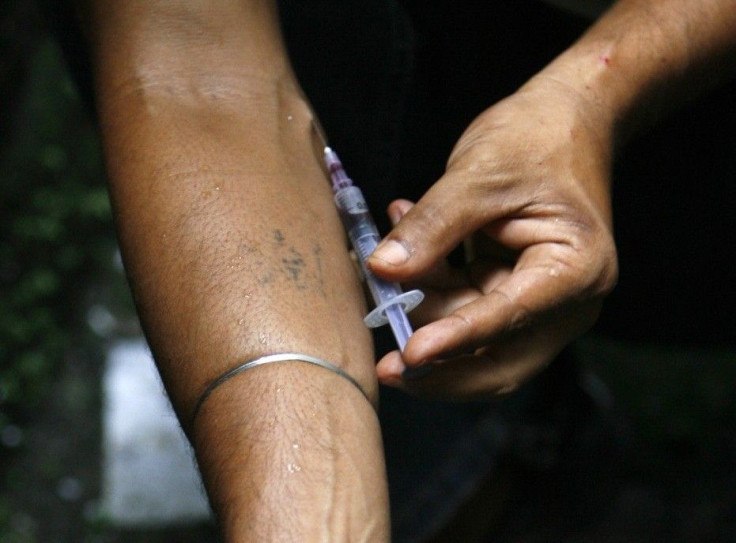Narcotics Gulag: Chinese Labor Camps To Be Transformed Into Drug Rehab Centers

After the conclusion of the Third Plenary meeting of the Communist Party, a gathering of China’s top policymakers and leaders, the central government announced its plans to abolish the country’s "re-education" labor camps, the controversial "laojiao" system.
As a result, in many parts of the vast country, the real estate once occupied by labor camps will be converted into drug recovery and rehabilitation centers.
In a 2009 report from a United Nations human rights forum, the Chinese government acknowledged 320 such labor camps nationwide holding 190,000 people, CNN noted.
The Shanghai Daily is reporting, for example, that in southwestern Yunnan Province, a former labor camp will be transformed into a drug rehabilitation center.
Specifically, Yunnan’s Xishuanbanna Dai Autonomous Prefecture, which borders Myanmar and Laos, is near the Golden Triangle, one of the world’s biggest drug production and trafficking centers, particularly for heroin. The area was the globe’s largest opium-producing region until Afghanistan surpassed it in production in recent years.
In the past, China, Laos, Myanmar and Thailand launched a joint effort in the area to combat drug trafficking, which involved the establishment of command centers staffed by agents from all four countries in the proximity of Xishuanbanna.
According to China’s state-run Xinhua News Agency, the move to close down the labor camps is a response to human rights criticism over the antiquated form of punishment. “China will abolish the re-education-through-labor system as part of a major effort to protect human rights,” the policy document from the Plenary session read. “China will also reduce the number of crimes subject to the death penalty,” the document added.
However, since drug rehabilitation facilities would require licensed personnel, it is unclear what will happen to former labor camp personnel. “The key to the functional changing of the former ‘laojiao’ sites is to advocate a greater role for the local society, based on the existing infrastructure,” Kong Shuhua, director of Xishuanbanna’s Justice Bureau, said. “The new rehab center will provide compulsory drug rehabilitation treatment for addicts, and help them find self-confidence again.”
With newfound prosperity and some freedoms, drug addiction is rising in China.
The Atlantic reported earlier this year that according to the Brookings Institution, the number of “officially registered” drug addicts in China jumped from 70,000 in 1990 to about 1.8 million by the end of 2011 -- a 16 percent annual growth rate. But the actual number of addicts may run as high as 12 million.
In addition, about one-third (32 percent) of China's HIV-positive population contracted the virus through intravenous drug use.
© Copyright IBTimes 2024. All rights reserved.






















